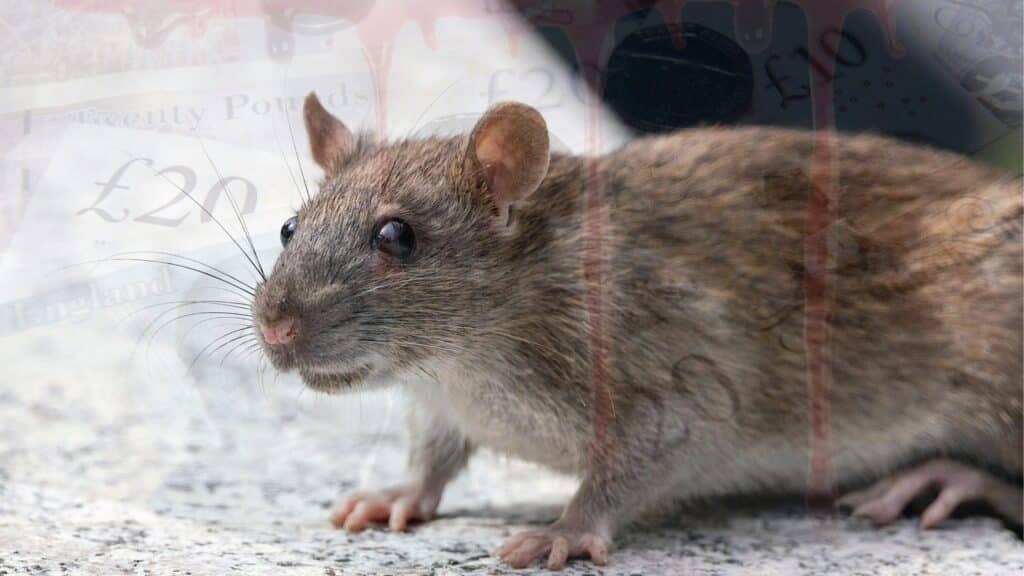Protect the Wild is sick of waiting for our incompetent government to protect the UK’s wildlife. We’re done with empty promises that were apparently only made to win votes. It’s time for real change, so we’re launching a new campaign focused on delivering tangible, concrete results. We will target a sector that has been largely untouchable until now: the ‘pest’ control industry. Additionally, we will shed light on the UK’s public bodies that are funding this industry.
Our new campaign will expose:
- The sheer scale and cost of taxpayer-funded wildlife killing, carried out in the name of controlling ‘pests’.
- The lack of transparency — public bodies rarely admit what species are killed or how many.
- The stranglehold of the pest control industry over local authorities and other publicly-funded institutions.
Huge scale
The ‘pest’ control industry is huge. By 2026, the industry is expected to make £683 million in revenue. With 3,546 individuals and 486 companies registered with the British Pest Control Association, it’s clear that the business of eliminating animals and insects is big money.
For too long, the sector has had it easy. It often operates without scrutiny, with a lack of regulatory oversight. It thrives on misleading narratives and propaganda that vilify specific animal species, all while turning a profit. Section 4 of the Animal Welfare Act makes it an offense to cause unnecessary suffering to any animal. Pest control companies, therefore, should carry out humane practices, only resorting to lethal methods as a last resort. Of course, the reality on the ground is very different. We’re here to hold the industry accountable.
The campaign
Blood Money: How Public Bodies Fund Wildlife Killing is an extensive research initiative aimed at uncovering the true cost of ‘pest’ control funded by the public.
Over the next few months, we will compile data from Freedom of Information requests sent to more than 1,000 publicly-funded organisations. Our inquiries have been directed at councils, universities, the NHS, the police, Network Rail, and others, demanding transparency about how much is spent on killing wildlife under the label of ‘pest control’.
- For local councils, this includes details on the use of traps, poisons, and other control methods in public spaces such as parks, schools, libraries, bus stations, and council-run buildings.
- Where services are outsourced, we’ve requested information on suppliers and contract values.
- We’ve also asked for records detailing the number of call-outs and animals killed, including the specific species targeted – whether that’s rats, mice, rabbits, foxes, gulls, pigeons, grey squirrels, or insects like cockroaches.
Once we’ve gathered our findings, we will approach each public body with clear, actionable demands. Collaborating with environmentalists, animal rights advocates, and humane wildlife control experts, we’ll create a comprehensive guidebook for these institutions. This guide will offer practical, non-lethal alternatives to unnecessary killings, showing that humane methods can be safer and healthier for both humans and animals, in contrast to toxic chemicals or extermination.
We’ll also debunk common myths, like the misconception that rats are “vermin” that must be poisoned.
On top of this, we will highlight examples of public bodies worldwide that have successfully adopted humane wildlife control practices.
Finally, we will point public bodies to local humane wildlife control companies in their areas of the UK.
We need YOUR help!
If the public bodies ignore our requests, this is where our followers and readers come in. Together we’re going to start a hard-hitting public campaign that will cause a national scandal.
We will name and shame the worst of the institutions, exposing in the press how many millions of pounds of public money are being spent on killing wildlife.
Together, we’ll put pressure on councils, the NHS, police and others, forcing them to pledge long-term reform of their policies.
We will demand that they train staff on humane practices; allocate a budget for humane wildlife control services; and partner with local humane wildlife control companies.
And if they still don’t change their ways, we will ask you to join part of a local movement in your area, which will keep a sustained pressure on these public bodies and expose future contracts.
We are determined to see a shift towards more ethical approaches to wildlife management, and we are certain that with your help we WILL get results.

